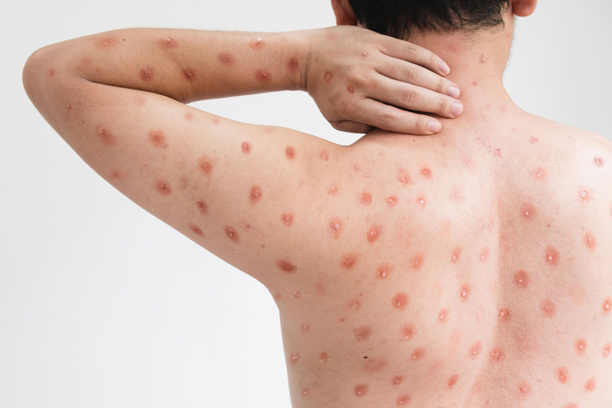Make an Appointment
Due to the rapidly increasing number of cases worldwide, the World Health Organization has now declared the Monkeypox outbreak as a global health emergency, indicating the necessity for a coordinated international response.
What is Monkeypox?
While clinically less severe than smallpox, Monkeypox is a viral zoonosis—a virus that spreads from animals to people—and has symptoms that were once common in smallpox patients.
The virus that causes this illness is an enveloped double-stranded DNA virus that is a member of the Poxviridae family and the Orthopoxvirus genus. It has two separate genetic clades, the central African (Congo Basin) clade and the West African clade. According to information, the Congo Basin clade was once assumed to be more transmissible and to have previously caused more severe disease.
The following steps are important precautions for Monkeypox:
- Do not come in close contact with somebody who has a rash that resembles Monkeypox.
- Never touch a Monkeypox victim’s rash or sores.
- Avoid sharing intercourse, kissing, hugging, and cuddling with someone who has the Monkeypox.
- Never handle or touch a person who has Monkeypox’s bedding, towels, or clothing.
- Use an alcohol-based hand sanitizer or often wash your hands with soap and water.
- Avoid interacting with rodents and primates in Central and West Africa as they are the main carriers of the Monkeypox virus.
- Avoid touching bedding or other items that ill or dead animals have touched, as well as sick or dead animals.
If you are sick with Monkeypox:
- Isolate at home
- When possible, stay in a separate room or area away from the people or pets you live with if you have an active rash or other symptoms.
Vaccination
The CDC advises vaccination for those who have had Monkeypox exposure and those who are more likely to get it, such as:
- People who have been identified as contacts of a Monkeypox case by public health agencies.
- People who may have been exposed to Monkeypox, such as:
- People who are aware that one of their sexual partners has had Monkeypox over the preceding two weeks.
- Those who had multiple sexual partners within the previous two weeks in a region where Monkeypox is known to exist.
People who may be exposed to orthopoxviruses due to their occupations include:
- Orthopoxvirus testing specialists in laboratories
- Employees in laboratories who handle orthopoxvirus-infected cultures or animals
- A few specially trained healthcare or public health personnel


2 Comments
Pingback: Precautions for Monkeypox – Sujata Birla Hospital
Pingback: Poxviruses | Types of Poxviruses | Sujata Birla Hospital